Power restored to protesting Serbs
The Serb village of Šilovo in Kosovo has today been reconnected to the power grid.
Tuesday, 10.03.2009.
09:17

The Serb village of Silovo in Kosovo has today been reconnected to the power grid. This came nine days after the village was left without its electricity supply, and after several days of protests that turned violent on Sunday. Today's protest has been canceled. Power restored to protesting Serbs Minister for Kosovo and Metohija Goran Bogdanovic reacted by saying that this was a positive move on the part of the Kosovo company in charge of electricity supply, KEK. The company previously said they refused to repair power supply lines to several Serb villagers until overdue bills were paid. "We believe that this electricity problem ought to be solved through talks and we appreciate the move of the KEK which, by reconnecting the power, in effect prevented very serious humanitarian problems that could have happened to the Serbs in Silovo. "We are open to a serious and constructive talk about a permanent solution to this problem, and, as before, we expect full support from the international community in this." Bogdanovic said that his ministry is working to reach permanent solutions to the power supply troubles in other Serb areas, but also to solve other problems that the Serb and other non-Albanian residents in Kosovo face. Also on Monday, before electricity was restored to Silovo, Bogdanovic said that "the provisional Kosovo institutions are carrying out an impermissible oppression of the Serbs, demanding that they recognize the quasi-state of Kosovo by paying enormous electricity bills". "We requested UNMIK and EULEX to urgently respond to this and prevent it," Bogdanovic said. "The Serbs in Kosovo and Metohija do not have means to pay what was consumed eight or ten years ago and the bills the Kosovo electrical corporation is sending are to high," he was quoted as saying. Meantime, the founder of the Pristina Media Center, today head of the government media office Milivoje Mihajlovic told B92 that the temporary authorties in Pristina is turning the power supply problem into a political one. The essence of the problem, in his words, in not that the villagers in Silovo or Priluzje do not wish to pay the bills, but that they are afraid to be exposed to ethnically motivated pressure. Earlier in the day, the Ministry for Kosovo said it asked for an emergency meeting with UNMIK and EULEX representatives regarding the situation in Silovo and other areas. The state secretary of that ministry, Oliver Ivanovic, said that if UNMIK did not accept the offer of help from Serbia, the situation in Serb villages would become even more complicated. “Either they will accept our generous assistance to pay for a part of the bill for the Serbs or there is no alternative, as we don’t have the technical possibilities to help the Serbs in another way. Then that will transform into mass protests, everywhere, in all places, which means there will probably be incidents and, I fear, clashes with the police,” said Ivanovic. He added another big problem is that it is not known who would guarantee application of the agreement, if it were reached. “Under the condition that UNMIK guarantees the carrying out of the agreement. In these situations over the last few months, UNMIK constantly says that it no longer has the responsibility, the possibility to act,” he said. “I worry that the possible agreement with UNMIK will not be good enough, so we will have to use some kind of extra-institutional means to communicate with representatives from diplomatic offices in Kosovo,” added Ivanovic. The Kosovo electric company (KEK) says that turning off the electricity "had no connection with ethnicity". They added that Serb villages didn’t have electricity because of failure and they would make repairs if bills were not paid. In addition to Silovo, other villages without electricity since last week are Priluzje and Grace in the Vucitrn district, and Babin Most and Plemetina in the Obilic municipality. Serbs in Priluzje gathered for a protest and called on the government to help them. The power cuts caused local elementary and high school to close their doors yesterday, while a local health center treats only emergencies, sending patients to have more detailed examinations in Kosovska Mitrovica. Serbs in these vulnerable areas are largely unemployed so they are unable to settle their debts. They announced an organized trip to central Serbia if they electricity problem is not soon resolved. Yesterday about 100 ethnic Albanians from the village of Stanovac in the Vucitrn district also protested, as they, too, have been without electricity for nine days. A KEK worker cuts off power to Serb households in Grace (Beta) Kosovo Serbs look for permanent solution Silovo, one of the largest Serb villages in the municipality of Gnjilane, had its electricity turned back on today, head of the Ministry of Kosovo office for Kosovsk Pomoravlje Predrag Stojkovic confirmed. Stojkovic said that he supposes that the international community pressured KEK into giving in to Serb demands, adding that the villagers cannot be content until the problem is solved permanently. “Clearly, the Albanian side does not want a long-term solution, but is selectively putting pressure on the Serbs from village to village. However, we will not be content with the fact that we received electricity after nine days and we will ask for the problem to be taken care of permanently,” he said. According to him, “only 22 percent of the population in Kosovo actually pays for electricity, and even if all Serbs paid for electricity it would not help KEK, which regardless of that continues to sanction only Serb villages.” “We are not running from paying electricity bills, but the problem must be solved seriously. We will not back down from this demand and we will not wait to see which Serb village will be the next to go without electricity,” Stojkovic said.
Power restored to protesting Serbs
Minister for Kosovo and Metohija Goran Bogdanović reacted by saying that this was a positive move on the part of the Kosovo company in charge of electricity supply, KEK.The company previously said they refused to repair power supply lines to several Serb villagers until overdue bills were paid.
"We believe that this electricity problem ought to be solved through talks and we appreciate the move of the KEK which, by reconnecting the power, in effect prevented very serious humanitarian problems that could have happened to the Serbs in Šilovo.
"We are open to a serious and constructive talk about a permanent solution to this problem, and, as before, we expect full support from the international community in this."
Bogdanović said that his ministry is working to reach permanent solutions to the power supply troubles in other Serb areas, but also to solve other problems that the Serb and other non-Albanian residents in Kosovo face.
Also on Monday, before electricity was restored to Šilovo, Bogdanović said that "the provisional Kosovo institutions are carrying out an impermissible oppression of the Serbs, demanding that they recognize the quasi-state of Kosovo by paying enormous electricity bills".
"We requested UNMIK and EULEX to urgently respond to this and prevent it," Bogdanović said.
"The Serbs in Kosovo and Metohija do not have means to pay what was consumed eight or ten years ago and the bills the Kosovo electrical corporation is sending are to high," he was quoted as saying.
Meantime, the founder of the Priština Media Center, today head of the government media office Milivoje Mihajlović told B92 that the temporary authorties in Priština is turning the power supply problem into a political one.
The essence of the problem, in his words, in not that the villagers in Šilovo or Prilužje do not wish to pay the bills, but that they are afraid to be exposed to ethnically motivated pressure.
Earlier in the day, the Ministry for Kosovo said it asked for an emergency meeting with UNMIK and EULEX representatives regarding the situation in Šilovo and other areas.
The state secretary of that ministry, Oliver Ivanović, said that if UNMIK did not accept the offer of help from Serbia, the situation in Serb villages would become even more complicated.
“Either they will accept our generous assistance to pay for a part of the bill for the Serbs or there is no alternative, as we don’t have the technical possibilities to help the Serbs in another way. Then that will transform into mass protests, everywhere, in all places, which means there will probably be incidents and, I fear, clashes with the police,” said Ivanović.
He added another big problem is that it is not known who would guarantee application of the agreement, if it were reached.
“Under the condition that UNMIK guarantees the carrying out of the agreement. In these situations over the last few months, UNMIK constantly says that it no longer has the responsibility, the possibility to act,” he said.
“I worry that the possible agreement with UNMIK will not be good enough, so we will have to use some kind of extra-institutional means to communicate with representatives from diplomatic offices in Kosovo,” added Ivanović.
The Kosovo electric company (KEK) says that turning off the electricity "had no connection with ethnicity". They added that Serb villages didn’t have electricity because of failure and they would make repairs if bills were not paid.
In addition to Šilovo, other villages without electricity since last week are Prilužje and Grace in the Vučitrn district, and Babin Most and Plemetina in the Obilić municipality.
Serbs in Prilužje gathered for a protest and called on the government to help them.
The power cuts caused local elementary and high school to close their doors yesterday, while a local health center treats only emergencies, sending patients to have more detailed examinations in Kosovska Mitrovica.
Serbs in these vulnerable areas are largely unemployed so they are unable to settle their debts. They announced an organized trip to central Serbia if they electricity problem is not soon resolved.
Yesterday about 100 ethnic Albanians from the village of Stanovac in the Vučitrn district also protested, as they, too, have been without electricity for nine days.
Kosovo Serbs look for permanent solution
Šilovo, one of the largest Serb villages in the municipality of Gnjilane, had its electricity turned back on today, head of the Ministry of Kosovo office for Kosovsk Pomoravlje Predrag Stojković confirmed.Stojković said that he supposes that the international community pressured KEK into giving in to Serb demands, adding that the villagers cannot be content until the problem is solved permanently.
“Clearly, the Albanian side does not want a long-term solution, but is selectively putting pressure on the Serbs from village to village. However, we will not be content with the fact that we received electricity after nine days and we will ask for the problem to be taken care of permanently,” he said.
According to him, “only 22 percent of the population in Kosovo actually pays for electricity, and even if all Serbs paid for electricity it would not help KEK, which regardless of that continues to sanction only Serb villages.”
“We are not running from paying electricity bills, but the problem must be solved seriously. We will not back down from this demand and we will not wait to see which Serb village will be the next to go without electricity,” Stojković said.











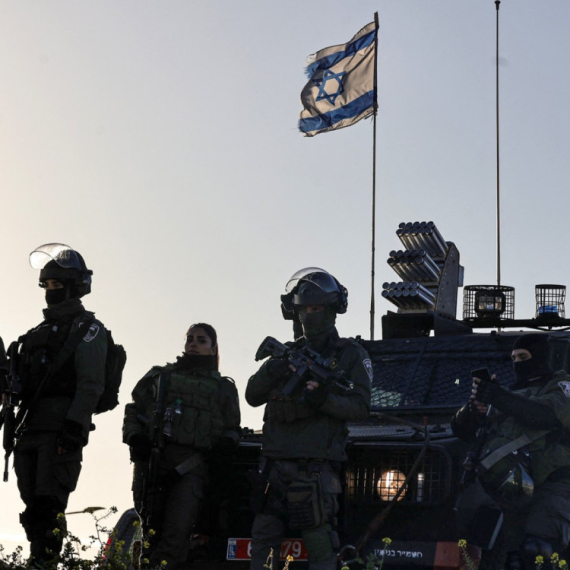


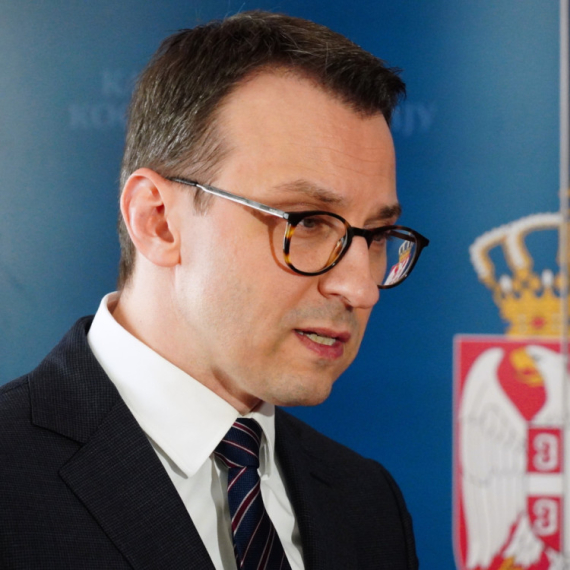
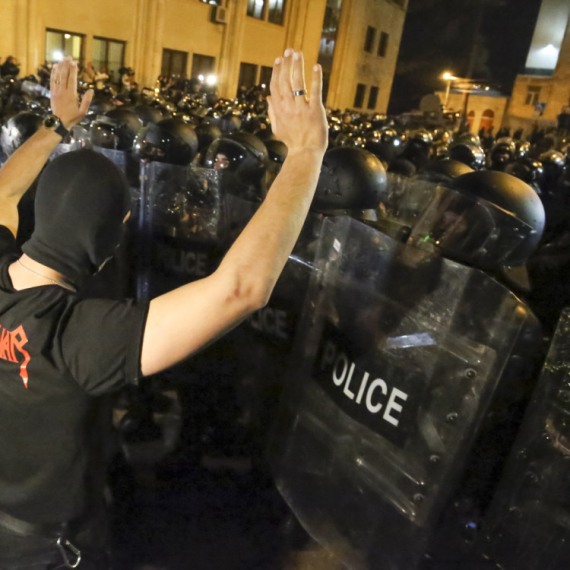
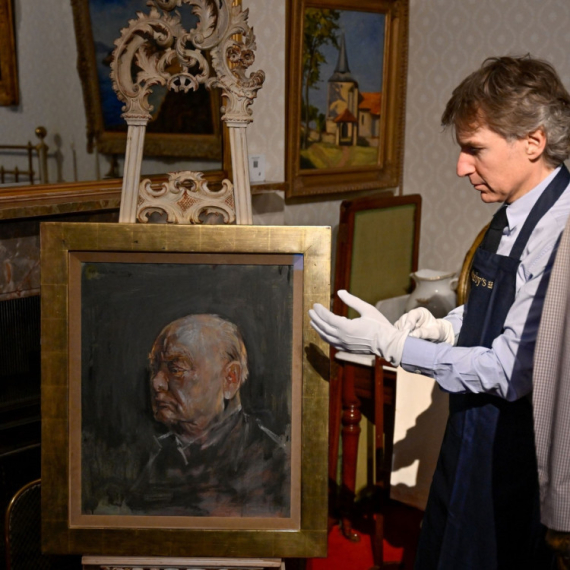



















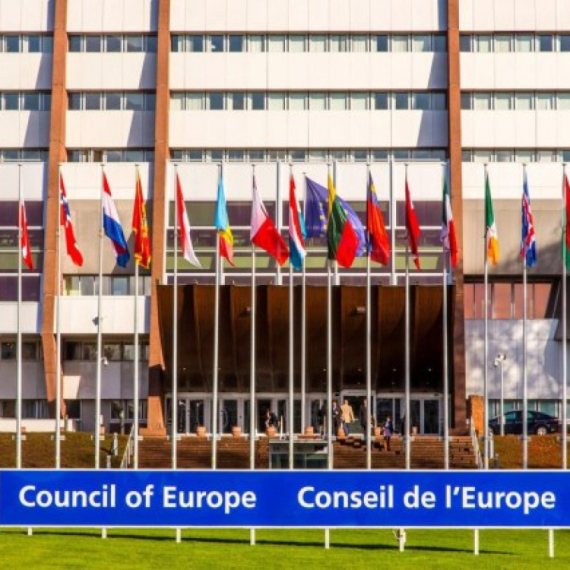





Komentari 46
Pogledaj komentare